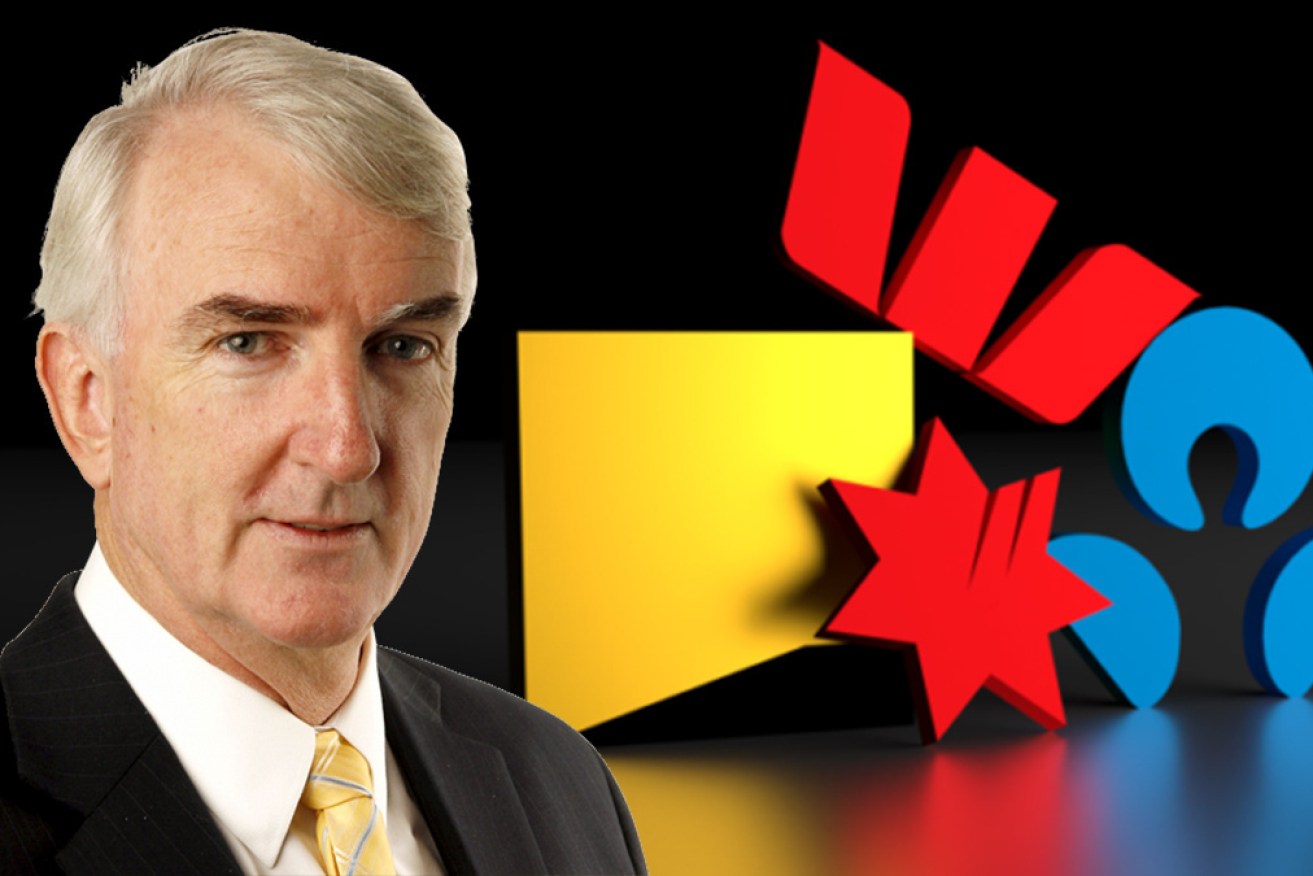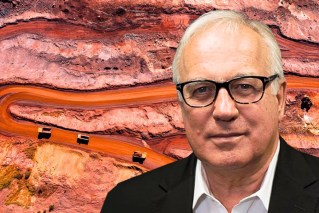Michael Pascoe: Credibility of bank economists trashed by one of their own


Saul Eslake probably didn’t mean to start the week by trashing the reputations of Australia’s bank economists, but he did.
And not just the prominent economists employed by banks –the equally publicity-prone economists employed by the big accounting/consultancy firms also copped an implied whacking.
Together, these are the people who provide the majority of “independent” economic commentary quoted by media.
Basically, our most influential private sector economists can’t be trusted to tell it straight, to be critical of federal government policy when it is warranted. They’ve been nobbled by political pressure.

Now independent, Saul Eslake is free to call economic policy the way he sees it. Photo: AAP
Saul is one of my favourite economists. For many years he was the ANZ Bank’s chief economist. He is now independent, a Vice-Chancellor’s Fellow at the University of Tasmania, effectively Tasmania’s Economist-in-Residence – and free to call it the way he sees it.
Writing for The Conversation this week, he voiced alarm at David Littleproud’s “sinister” threat to withdraw ANZ customers’ deposit insurance.

David Littleproud attempted to pressure ANZ into lending to coal companies. Photo: AAP
As a prelude to calling out Mr Littleproud’s apparent willingness to force banks to lend to the companies that the Coalition favours, Mr Eslake recounted his experience of having his mouth shut by political pressure in 2002 when Peter Costello was treasurer and John Howard was PM.
In a speech to an accountants’ conference, he had criticised the Howard government’s “pretence that the goods and services tax wasn’t a federal tax and therefore didn’t need to be included in budget estimates of total tax collections”.
As Saul wrote, he was speaking “on an arcane topic to an obscure conference”: “After seeing media reports of that speech, the then treasurer Peter Costello phoned the then chief executive of the ANZ John McFarlane threatening (as McFarlane subsequently relayed his words to me) regulatory action which the ANZ would not like if I said that sort of thing again.
“Costello also had his then press secretary fax (it was 2002) a press report of my remarks to the then chairman of ANZ, Charles Goode, with the offending passage circled.”

Then Treasurer Peter Costello, talking to PM John Howard in Parliament, exerted pressure on ANZ about a speech in 2002. Photo: AAP
Saul wrote that he was “astonished” that the treasurer would have the time to ring the head of one of Australia’s Big Four banks to complain about such a point.
“And I was appalled that any Australian treasurer would be willing to use the regulatory powers granted to him to help ensure the stability of the financial system to (at the very least) silence someone who’d had the temerity to question the accounting treatment of a tax measure.”
(I suspect Mr Costello’s extreme sensitivity was based on his desire not to be recognised as Australia’s biggest-taxing treasurer, hence the accounting fiddle he was desperate to protect.)
It’s a grim story about the willingness of Peter Costello to throw his political weight around, about his scant regard for honest and reasonable opinions and the freedom of cornerstone Australian institutions.
What’s worse is what followed: Mr Costello got what he wanted.
Chairman Goode reminded Saul that “I should not create the impression that ANZ was aligned with any side of politics”.
Mr McFarlane “indicated that it was important that the ANZ ‘got on well’ with the man who was (in his words) ‘likely to be the next prime minister’ and asked me to ring Costello up and ‘smooth things over’, and to avoid commenting on that particular topic again”.
And he didn’t.
“I scrupulously avoided such comments from then on,” he wrote.
“When I declined an invitation from a journalist to comment on a subsequent government decision to fiddle with the timing of the Reserve Bank dividend to improve the 2004-05 budget position at the expense of the 2003-04 one, I received a note from McFarlane thanking me ‘for taking the greater good of ANZ and an easier life for me into account’.
Anyone think anything has changed about the commercial pressure the government of the day brings to bear on the commercial organisations it has sway over?
How often do you see a “chief economist” get stuck into poor government policy? Funny, that.
At best, careful neutrality is the order of the day, yet by dint of ubiquity and availability, with all the authority conferred by media profile, such people play an important role in public perception of what passes for our economic policy debate.
There is much to debate about economics and economic policy is highly political, but the public is not getting the full picture from the game’s most prolific commentators.
Instead, the commentary has a pro-government flavour that ranges from subtle to outright cheerleading.
On top of the pressure not to annoy the government, the commentary often is coloured by more direct financial interests.

Nobel Prize winners Esther Duflo and Abhijit Banerjee concisely summed up the major issues. Photo: Reuters
The winners of last year’s Nobel Prize for economics, MIT’s Abhijit Banerjee and Esther Duflo, had a passing slash at it in their book, Good Economics for Hard Times.
“The self-proclaimed economists on TV and in the press – chief economists of Bank X or Firm Y – are, with important exceptions, primarily spokespersons for their firms’ economic interests who often feel free to ignore the weight of the evidence. Moreover, they have a relatively predictable slant toward market optimism at all costs, which is what the public associates with economists in general,” they wrote.
Just as a real estate agent is likely to say it’s always a good time to buy a property, an economics spokesperson for a bank, merchant bank or accountancy firm is unlikely to ever suggest a government asset or responsibility shouldn’t be privatised.
All of which is not to say the major economics teams in the finance sector are a waste of space. They certainly are not.
The best of them play a valuable role in interpreting economic events, highlighting and collecting important data. There are some insightful and good communicators.
But it’s important to be able to apply a filter that allows for the impact of political pressure on such people when government policy is the issue. That’s a filter most casual readers and viewers might not have.
You shouldn’t ask a barber if you need a haircut.








